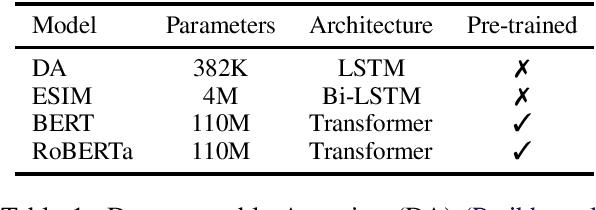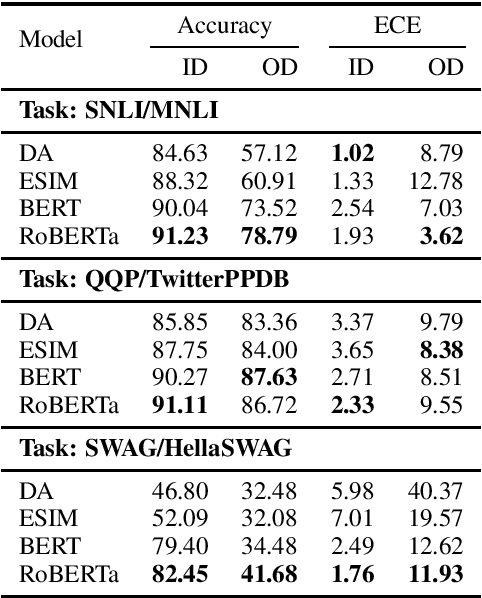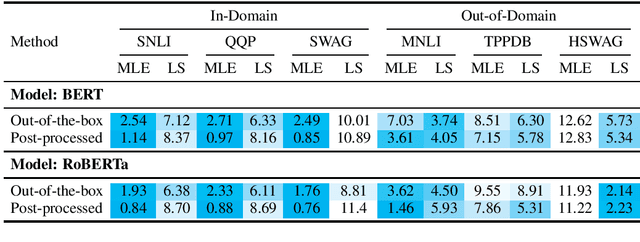Calibration of Pre-trained Transformers
Paper and Code
Mar 20, 2020



Pre-trained Transformers are now ubiquitous in natural language processing, but despite their high end-task performance, little is known empirically about whether they are calibrated. Specifically, do these models' posterior probabilities provide an accurate empirical measure of how likely the model is to be correct on a given example? We focus on BERT and RoBERTa in this work, and analyze their calibration across three tasks: natural language inference, paraphrase detection, and commonsense reasoning. For each task, we consider in-domain as well as challenging out-of-domain settings, where models face more examples they should be uncertain about. We show that: (1) when used out-of-the-box, pre-trained models are calibrated in-domain, and compared to baselines, their calibration error out-of-domain can be as much as 3.5x lower; (2) temperature scaling is effective at further reducing calibration error in-domain, and using label smoothing to deliberately increase empirical uncertainty helps calibrate posteriors out-of-domain.
 Add to Chrome
Add to Chrome Add to Firefox
Add to Firefox Add to Edge
Add to Edge